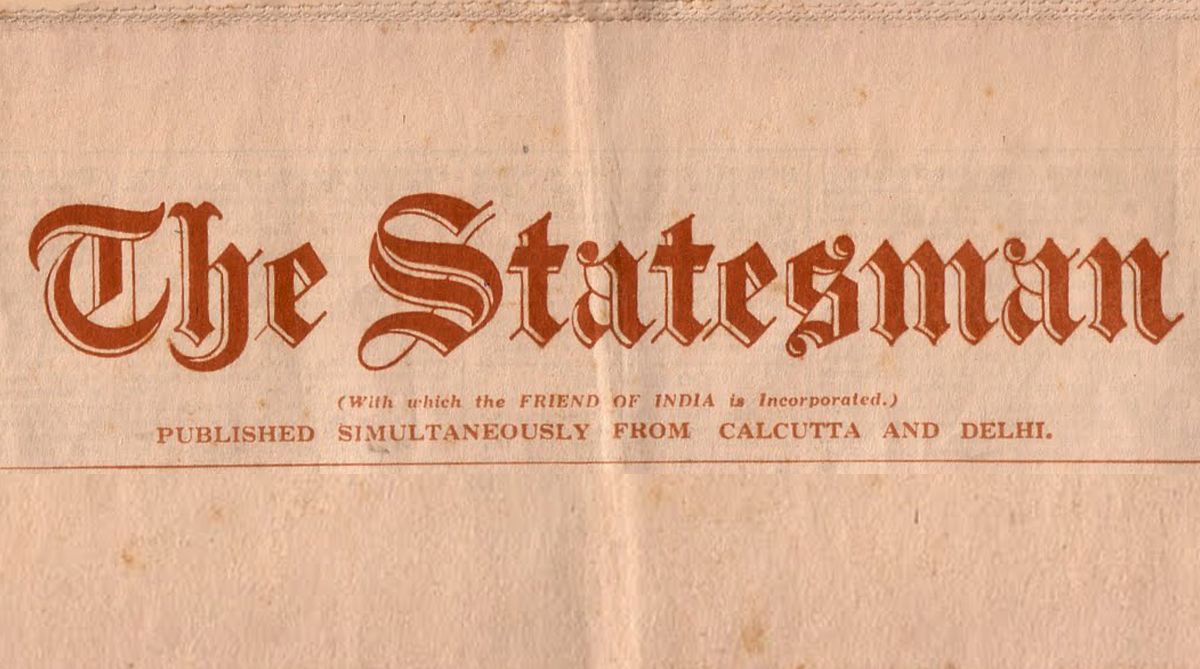A New Day, A New Dawn
There is a surprise for the readers. A special Poila Boishakh gift from none other than West Bengal chief minister Mamata Banerjee. Who has written a piece for this special edition.
On this day a century ago, these were some of the news items The Statesman readers got to read about India and the world.

OCCASIONAL NOTE
One remarkable feature of the reception accorded the latest German peace offensive has been the attitude of what used sometimes to be known to its opponents as the “little Englander” Press. The Daily News was one of the last of the Radical organs to be converted to the inevitability of England’s intervention in the war, while the Manchester Guardian, so recently as during the period of the disclosures regarding the Emperor Karl’s peace letter, persistently suggested that the British and French Governments had been less alert to accept the extended olive branch than they should have been in the interest of their own populations. The latest German offensive sees these organs among the most resolute in demanding that, even at the cost of another year or two of war, an end shall be made once for all of the German militarist menace. The Manchester Guardian demands Essen as a security for an armistice and insists on a programme which differs little from Mr. Asquith’s “restitution, reparation and guarantees” – still the best epitome of Allied aims. The Daily News appears to be in the ranks of those who demand the deposition of the Hohenzollerns. That these organs should speak in such a voice is equivalent to a declaration that Wilhelm the Second and his barbarians have achieved what even Napoleon failed to do, for no single dissentient voice is now heard in England when the future of Germany and its rulers is under discussion.
BOMBAY HOSPITAL TRAGEDY
Advertisement
The tragic death is reported of a European named William Bridle who was an indoor patient of the Freeman Thomas Hospital. On Monday night his body was found on the lawn in front of the verandah of the hospital. The evidence at the Coroner’s inquest showed that deceased was suffering from influenza, which had developed into pneumonia, and was progressing favourably. He was perfectly rational and spoke coherently when last seen at 5 in the evening. The jury returned a verdict that death was caused by a fracture of the neck sustained in a fall from the verandah of the Freeman Thomas War Hospital, and that there was no evidence to show how deceased, who was suffering from pneumonia came to fall.
GERMANS NEW REGARD FOR CIVILIANS
A Berlin official message states that the German Command has requested the Swiss to inform the French that owing to the fears of a bombardment a general panic is probable among civilians in the region of Lille and Valenciennes. The message intimates that the Dutch Government has been asked and has agreed to shelter the fugitives as far as possible. Another Berlin message announces the flight of 30,000 civilians and proposes that the Allies should agree to refrain from bombarding the towns in northern France, adding that Germany is prepared to come to an agreement for part of the population to cross into the enemy lines. Failing compliance Germany will not be responsible for the fate of civilians in occupied territory.
MENIN CAPTURED
Last night’s British communiqué says: The Allied forces under the King of the Belgians continued to attack. The Belgians reached the approaches to Wyjngdaale wood and Thourout. The French reached the outskirts of Lichtervelde. Farther south, despite lively resistance, they pushed beyond the Roulers- Lichtervelde railway. Southward of the canal the Belgians captured Lendelede. The second British army reached Lechat, captured Gulleghem and Heule and reached the outskirts of Courtrai. We occupied Menin and Warwick, where we obtained a footing on the right bank of the Lys. Since October 14th the Allies have taken 12,000 prisoners and captured over a hundred guns.
AVIATION REPORT
A British communiqué regarding aviation says: Fine weather made possible the greatest activity all day long. Our bombers caused great damage to rail stations and junctions in the rear of the enemy’s lines, obtaining many direct hits and starting numerous fires in rail sheds. The total of bombs dropped was thirtythree tons. German aeroplanes were most active on the northern battle-front, where heavy fighting ensued. We destroyed thirty hostile machines in addition to two shot down from the ground. Eleven British are missing. Our night-fliers continued to attack rail junctions with good effect, and dropped over thirteen tons.
Advertisement